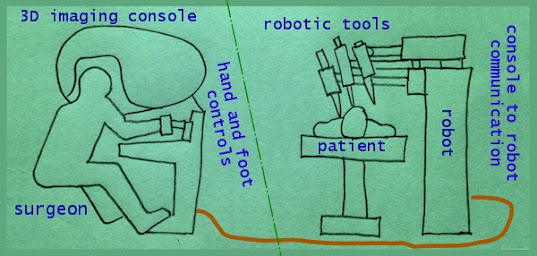That's right, recent studies suggest that as many as 10% of people with high blood pressure could be cured by adrenal surgery. In the U.S. alone, where the number of people with high blood pressure is estimated to be 71 million, there could be over 7 million candidates for this procedure. And that's the funny thing about primary aldosteronism: you may be happy to find you've got it. Why? Because treating primary aldosteronism can lower the risk of heart attack and stroke. It can also mean lower blood pressure, or even an end to blood pressure medication.
A Gland Called Adrenal
When either or both of your adrenal glands pump out too much aldosterone your body:- retains sodium (we all know too much sodium is not good for blood pressure), and
- leaches out too much potassium (while excess potassium can be deadly, too little can also have fatal consequences, like a stroke or heart failure due to atrial fibrillation).
If your doctor successfully treats your primary aldosteronism, then you may enjoy lower blood pressure with fewer or no medications, plus return to a regular heartbeat, and freedom from muscle cramps. You could well feel more energetic, given the reversal of your hypokalemia (low potassium).
Farewell My Left Adrenal
Thanks to some good old-fashioned medical work by my primary care physician (Dr. Adam Pacal) and gifted nephrologist (Dr. Jadwiga Alexiewicz) it was determined that I was a classic case of primary aldosteronism in which a growth on one adrenal gland is responsible for the over-production of aldosterone.The culprit was my left adrenal and this was confirmed by some fancy testing, reinforced by my body's positive reaction to a drug called spironolactone, an "aldosterone receptor antagonist that causes the kidneys to eliminate unneeded water and sodium from the body into the urine, but reduces the loss of potassium from the body." (NIH)
Because the spironolactone was effective at lowering my blood pressure by several points, it seemed likely that removing the cause of the excess aldosterone would be beneficial. Surgery was scheduled.
Nine days after the surgery I can sense numerous positive changes in my body. For a start, I have not experienced any muscle cramps since the operation, despite not taking any potassium supplements.
Second, I feel either more relaxed or less stressed. (I'm not sure which term best describes my state of mind, and that state of mind might just be a temporary state, but so far I am enjoying it.)
My blood pressure seems to be better controlled, with fewer medications, although it is early days yet. Whether I can be weaned off HBP meds altogether remains to be seen. I am pretty sure that the trauma and lingering pain of the surgery elevates BP readings for days afterwards. I will report back at 15 and 30 days.
What Was Going On?
In the years prior to my operation I was dealing with all of these symptoms of chronic lack of potassium, despite a potassium-rich diet and supplements:- Palpitations, which are sensations of a racing, uncomfortable, irregular heartbeat or a flopping in your chest (that's language from the Mayo Clinic)
- Atrial fibrillation
- Weakness and fatigue
- Leg and foot cramps
And guess what? For years I had been attributing most of physical ills to an inverse trifecta of advancing age, plus the stress of the financial crash -- in which we lost our home and our life savings, plus my wife's illness and disability. Only when I was back on my feet and settled into a job that I really enjoyed did it occur to me to dig deeper into why I was continuing to have these symptoms. Now, despite the lingering pain of abdominal surgery, I am very glad that I did dig.
Now I need to write up my surgical experience to help folks who discover that they need one of their adrenals removed. A recent study suggests that five percent of high blood pressure cases could be like mine, curable through surgery. The operation is no walk in the park, but in my case it is proving to have been a positive step forward.






